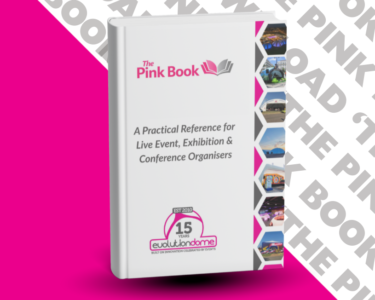
In a world where stress and burnout are increasingly common, workplace wellbeing is no longer just a nice-to-have—it’s a critical component of business success. Madison Ayache, Vice President of CTW Events, explores why investing in your team’s wellbeing is more relevant than ever, and how human sustainability could be the missing link in turning good intentions into lasting impact.
What drives and motivates your team? As wellbeing continues to be at the forefront of everyone’s minds, many businesses are becoming increasingly aware that it’s not just good work and a good environment that nurtures wellbeing in the workplace – it’s doing good too.
For many businesses, this ‘doing good’ is showcased in the form of human sustainability, the act of creating meaningful, purpose-led experiences that support both employee wellbeing and business success. Be it dedicating time at a local charity or lending a hand to rebuild or renovate a local area, many businesses ensure they are also ‘doing good’ by organising a charity day or similar.
So why is workplace wellbeing still such a challenge?
Starting the conversation
One of the biggest barriers is a lack of genuine engagement. Too often, wellbeing initiatives are rolled out as top-down mandates—a yearly charity day that looks good in a report but lacks employee input. Without active involvement, the potential wellbeing benefits are often missed.
According to a recent London Benchmarking Group study, employee volunteering in the UK shows just 14.3% engagement—translating into more than 200 million hours of untapped potential. To put the wellbeing back into workplace wellbeing, the conversation needs to start with employees. Ask what matters to them. Let them help shape it.
The cost of disengagement
This lack of connection doesn’t stem from disinterest. In fact, 64% of millennials say they wouldn’t take a job with a company that lacks a strong sense of social responsibility. When you combine that with the growing financial impact of poor mental health in the workplace—currently costing UK employers £56 billion annually—it becomes clear that workplace wellbeing isn’t optional. It’s a business imperative.
Spiritual wellness: the next frontier
So what’s the solution? Involving employees from the start and making meaningful actions more frequent are both key—but so is identifying the right type of “good” for your team. When businesses align their values with their actions, they’re tapping into spiritual wellbeing—a deeper form of wellness that focuses on meaning, purpose, and belonging.
At CTW Events, this is at the heart of what we do. We help companies define what truly matters to them, then bring it to life through high-impact, energising experiences. These events not only distribute vital supplies like hygiene products, food, and school kits—they also create lasting bonds within teams and communities.
When done right, human sustainability supports a healthier, more engaged workforce, lower turnover, and a more resilient company culture.
Let’s stop treating workplace wellbeing as a one-off initiative. Let’s build it into the DNA of our organisations—together.

👇Follow more 👇
👉 bdphone.com
👉 ultractivation.com
👉 trainingreferral.com
👉 shaplafood.com
👉 bangladeshi.help
👉 www.forexdhaka.com
👉 uncommunication.com
👉 ultra-sim.com
👉 forexdhaka.com
👉 ultrafxfund.com
👉 bdphoneonline.com
👉 dailyadvice.us




